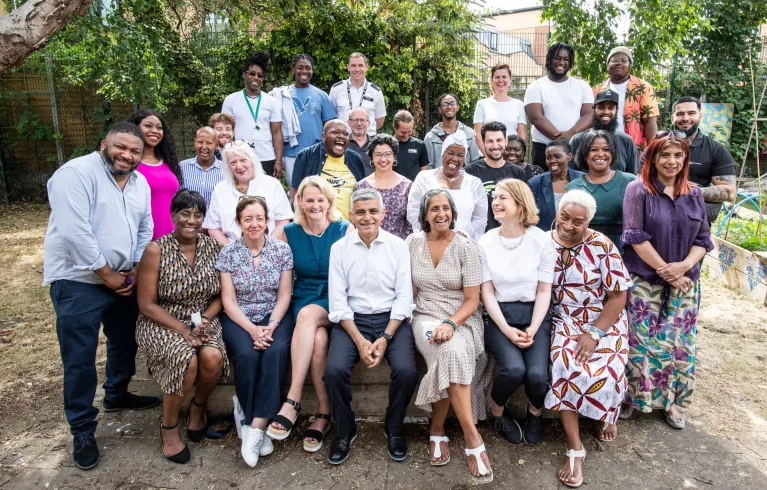
Key information
Publication type: General
Contents
6 sections
The programme
In 2021, the Violence Reduction Unit (VRU) developed the ambitious and innovative community-led MyEnds programme, investing £9 million to provide support, capacity and funding for locally-designed interventions in neighbourhoods affected by high and sustained levels of violence.
Following the success of the pilot, an additional £7.8 million was secured through Mayoral investment, allowing the VRU to implement key learning from the first three years and develop an evolved iteration of the programme, expanding from 8 to 11 hyper-local areas.
Methodology
The VRU commissioned a suite of reports to understand the impact of MyEnds and develop our understanding of the model.
Impact Evaluation - This independent evaluation report highlights emerging impact, strengths, promising practice and implementation learning from the first two years of MyEnds. The evaluation took a mixed methods approach including interviews, observation, surveys, document review, performance monitoring analysis, and deep-dive case studies.
The five thematic reports, delivered in the third year of the programme, represent a deep dive into the MyEnds model, key mechanisms and learnings for future place-based interventions:
-
Thematic report 1 – The MyEnds model
-
Thematic report 2 – Strengthening community networks
-
Thematic report 3 – The grassroots grant programme
-
Thematic report 4 – Intervention delivery
-
Thematic report 5 – Lessons and implications for future delivery
Key findings
The first two years of delivery identified emerging evidence of:
-
stronger local networks within the VCS and between community networks and statutory organisations
-
more joined-up working and collective approaches to violence reduction
-
promoting stronger grassroots organisations.
Progress made by the programme so far is encouraging and has allowed local systems to strengthen their capacity for continuing to work towards intended impacts.
The thematic reports highlight:
-
The value of collective action in producing stronger local networks and community-based interventions to prevent and address violence.
-
The VRU’s support and promotion of this way of working has begun to increase the presence and status of VCS partners in planning and delivering violence reduction approaches.
-
The injection of resource and energy into MyEnds has produced some sustainable relationships and activities, as well as supporting the sustainability of organisations involved.
Emerging best practice
A number of promising practices and approaches for place-based interventions have been identified. In particular:
-
using a popular activity to encourage engagement
-
tapping into existing community groups and forums
-
providing physical spaces for young people to access support
-
information sharing at pace to support responses to critical incidents.
Challenges and lessons learned
Several challenges and opportunities for future place-based programmes were identified. In particular:
-
ensuring adequate timeframes for programme implementation
-
taking a strategic approach to intervention development and targeting
-
further support for capacity building needs for delivery partners
-
building opportunities for greater collaboration between VCS and grassroots
-
Facilitating opportunities for a range of people (e.g. young people, their communities, representatives of grassroots organisations) to be involved in sharing learning, planning and setting strategy for violence reduction
-
Embedding sustainability within planning from the outset across all activities.
MyEnds next steps
The MyEnds programme has been recommissioned for two years (from 2024-2026). The VRU has commissioned the Innovation Unit to deliver a dynamic process evaluation to provide learning and evaluation support for each MyEnds site.
We will also explore the long-term impact of MyEnds through a quantitative impact evaluation using a quasi-experimental design. This work will be led by MOPAC Evidence & Insight.
Related documents
MyEnds impact evaluation: main report
MyEnds impact evaluation: short summary
(AC) MyEnds extension evaluation. Thematic report 1 - My Ends model
(AC)MyEnds extension evaluation. Thematic report 2. Strengthening community networks
(AC) MyEnds extension evaluation. Thematic report 3 - Onwards grants.
(AC) MyEnds extension evaluation. Thematic report 4. Interventions
(AC)MyEnds extension evaluation. Thematic report 5. Lessons and implications
(AC)MyEnds extension evaluation. Short summary report